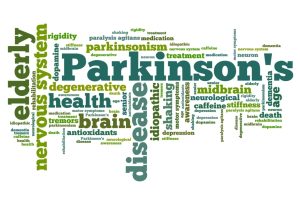 Early Parkinson’s disease may lead to non-motor symptoms such as drooling, anxiety, and constipation. Study author Tien K. Khoo explained, “Oftentimes, people with early Parkinson’s don’t even mention these symptoms to their doctors, and doctors don’t ask about them, yet many times they can be treated effectively.”
Early Parkinson’s disease may lead to non-motor symptoms such as drooling, anxiety, and constipation. Study author Tien K. Khoo explained, “Oftentimes, people with early Parkinson’s don’t even mention these symptoms to their doctors, and doctors don’t ask about them, yet many times they can be treated effectively.”
The study compared 159 patients with newly diagnosed Parkinson’s disease to 99 people of similar age without Parkinson’s disease. Participants were asked if they had any of the 30 non-motor symptoms such as sexual problems, sleep problems, and gastrointestinal problems.
Advertisement
Newly diagnosed patients had on average eight non-motor symptoms, compared to three among those without Parkinson’s disease. The most frequently reported symptoms were drooling, urinary urgency, constipation, anxiety, and reduced sense of smell. These symptoms may be present long before Parkinson’s disease is diagnosed.
Khoo added, “These results show that Parkinson’s affects many systems in the body, even in its earliest stages. Often, these symptoms affect people’s quality of life just as much if not more than the movement problems that come with the disease. Both doctors and patients need to bring these symptoms up and consider available treatments.”
Understanding non-motor symptoms like drooling, anxiety, and constipation in Parkinson’s disease
Although the primary symptom of Parkinson’s disease is the progressive loss of motor skills – walking, for example – there can be a variety of non-motor symptoms as well. Some of these symptoms include mood disorders, cognitive changes, hallucinations and delusions, orthostatic hypotension, sleep disorders, constipation, pain, fatigue, vision problems, excessive sweating, increase in dandruff, urinary urgency, frequency, and incontinence, loss of smell, sexual problems, weight loss or weight gain, and impulsive control disorders.
As previous research found that the most common non-motor symptoms of Parkinson’s disease were drooling, anxiety, and constipation, we will examine these three in greater detail.
Anxiety in Parkinson’s disease
When feelings of worry become constant, then it could indicate an anxiety disorder. Anxiety is seen as a common non-motor symptom of Parkinson’s disease and is brought on by the changes in the brain as a result of the disease, so it isn’t just a reaction to a Parkinson’s diagnosis. Some estimates show that 25 to 45 percent of Parkinson’s disease patients will experience an anxiety disorder.
It’s important to note that anxiety in Parkinson’s is not associated with disease progression, and it can be present even before diagnosis or much later. Some patients may experience only anxiety, or it may be accompanied by depression.
Treating anxiety and depression is important as both can contribute to worsened health outcomes.
Drooling in Parkinson’s disease
Drooling is even more common than anxiety in Parkinson’s disease, affecting 70 to 78 percent of patients. Many find it useful to carry around a handkerchief in order to clean up drooling. Men have been found to drool more than women with Parkinson’s disease and they are also more embarrassed by it, too.
Why drooling occurs in Parkinson’s disease is not completely clear, but it can be explained by the fact that these patients do not swallow as much as those without the disease. Research studies have uncovered that Parkinson’s disease patients do not produce more saliva than people without the disease. In fact, they produce less.
Along with embarrassment, drooling can also contribute to sores in the corner of the mouth and bad breath.
Constipation in Parkinson’s disease
Advertisement
Constipation in Parkinson’s disease, although annoying, can be managed. Lifestyle changes such as eating more fiber-rich foods can help improve your condition. Constipation may be one of the earliest signs of Parkinson’s disease.
Causes of constipation include lack of dopamine, uncoordinated bowel movements, eating problems, drinking problems, a sedentary lifestyle, and a side effect of medications.
Treating constipation is important to avoid complications such as bowel incontinence, urinary incontinence, urinary tract infections, lethargy, nausea, and abdominal pain.
